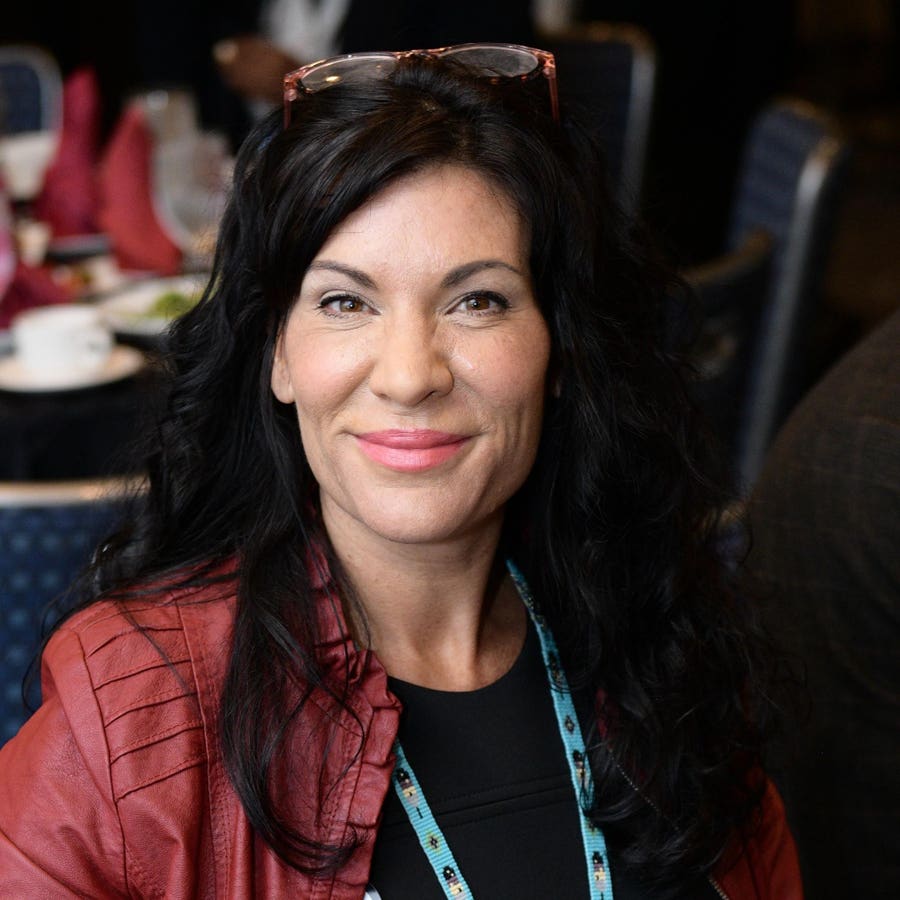Native Americans own over 400,000 businesses across the United States, accounting for 1.2% of all U.S. firms. Yet many entrepreneurs face significant barriers in accessing capital, often due to the unique legal and geographic structures within tribal communities and broader challenges within the traditional lending system.
As President and CEO of Oweesta Corporation, a national Native CDFI intermediary, Chrystel Cornelius leads efforts to bridge the gap between financial institutions and Native communities. A citizen of the Oneida Nation of Wisconsin and the Turtle Mountain Band of Chippewa Indians in North Dakota, Chrystel has spent the past 25 years advancing economic development in Native and rural areas.
I recently had the opportunity to speak with Chrystel about the current landscape for Native-owned businesses and the transformative work of Oweesta. Our conversation, edited for clarity, follows below.
Rhett Buttle: At a high level, can you describe how Native small business owners are contributing to the economy in the United States, as well as their communities.
Chrystel Cornelius: Native small business owners are vital to the strength and sovereignty of Indigenous communities and the U.S. economy. Rooted in resilience, innovation, and cultural stewardship, Native entrepreneurs are driving economic growth, creating jobs, and reclaiming economic power on their own terms.
Today, Native Americans own over 400,000 businesses across the United States, representing 1.2% of all U.S. firms. Collectively, these businesses contribute over $33 billion annually to the economy and employ nearly 300,000 workers nationwide. Native-owned businesses are thriving in industries such as construction (35,969 firms), professional and technical services (30,966 firms), and other key sectors (43,573 firms). Their impact extends beyond these numbers—Native entrepreneurs are leading in tourism, agriculture, technology, and the arts, bringing Indigenous knowledge and practices into the broader market.
Many Native business owners are weaving tradition with innovation, integrating ancestral knowledge, sustainable practices, and cultural craftsmanship into their enterprises. Their success is a direct investment in Indigenous communities, strengthening local economies, funding education, expanding healthcare access, and fostering self-sufficiency. Native entrepreneurs are not only contributing to the economy—they are building legacies, preserving culture, and reclaiming economic sovereignty for future generations.
Rhett Buttle: What are some of the unique challenges Native entrepreneurs face in starting and maintaining their own small businesses?
Chrystel Cornelius: Native entrepreneurs face distinct challenges when launching and sustaining their businesses, many of which are rooted in historical and systemic barriers. One of the most significant obstacles is limited access to capital and investment. Unlike the rest of America, many Native business owners struggle to secure traditional loans due to the rural nature of tribal communities and the reluctance of conventional banks and investors to support Native-led businesses. Without equitable financial opportunities, Indigenous entrepreneurs often rely on self-funding or community-based lending, which can limit growth potential.
Infrastructure disparities further hinder Native business development. Many Indigenous communities lack reliable internet access, transportation networks, and commercial space, making it difficult to operate and scale businesses—especially in remote or rural tribal lands. These infrastructure gaps place Native entrepreneurs at a disadvantage in an increasingly digital and interconnected economy.
Market access and visibility also present significant challenges. Native business owners frequently struggle to break into mainstream markets due to limited networking opportunities, lack of exposure, and misconceptions about Indigenous products and services. Many businesses rely heavily on word-of-mouth and local sales, which can limit their ability to expand and reach broader audiences.
Despite these challenges, Native entrepreneurs continue to build and sustain businesses that uplift their communities, preserve cultural traditions, and contribute to economic sovereignty. Addressing these barriers—through increased access to capital, stronger infrastructure investment, and broader market inclusion—is critical to ensuring the long-term success and resilience of Native-owned businesses.
Rhett Buttle: How does the Oweesta Corporation work with businesses to help them overcome these challenges?
Chrystel Cornelius: Oweesta Corporation plays a critical role in strengthening Native small businesses by acting as a direct investor in Native Community Development Financial Institutions (Native CDFIs), which often face limited access to capital. By supporting these financial institutions, Oweesta ensures that Native entrepreneurs and tribal businesses have access to the funding and resources they need to thrive within their communities.
Beyond investment, Oweesta supports Native CDFIs, Tribes, and Native-led nonprofits by providing technical assistance, training, and capacity-building support. These efforts help organizations strengthen their expertise needed to deliver capital, financial education, and business development services to Native entrepreneurs.
By directly investing in Native-led economic development efforts, Oweesta strengthens the financial infrastructure in tribal communities, creating pathways for small business success, job creation, and long-term economic sovereignty. Through these efforts, Oweesta ensures that Indigenous businesses are not just surviving—but thriving.
Rhett Buttle: Would it be possible to share some success stories?
Chrystel Cornelius: Absolutely. One inspiring example comes from Olympia, Washington, where Native American and veteran entrepreneurs Daniel and Treasa Sabo launched MELO Powerwash—a professional exterior cleaning company focused on helping homeowners and businesses maintain and enhance their properties.
Treasa’s journey began when she connected with the Nimiipuu Fund and enrolled in their Indianpreneurship Workshop. Through this program, she sharpened her business strategy and created a solid plan to bring MELO Powerwash to life. With the guidance and support of the Nimiipuu Fund, she secured seed capital through a Native CDFI—providing the critical investment needed to launch the business.
Today, MELO Powerwash has grown to serve both residential and commercial clients across Washington State, offering services like pressure washing, roof and window cleaning, and even holiday light installations. But their impact goes beyond business—by helping others protect their homes and investments, the Sabos are building a stronger, more resilient community.
Rhett Buttle: The White House recently issued an executive order on reducing the federal government that impact the CDFI fund and the MBDA. Would this affect Native small businesses and if so, how?
Chrystel Cornelius: The CDFI Fund and the NACA Program have made it possible for Native CDFIs to serve as financial pillars in their community, providing capital where traditional banks and lenders have fallen short. Native CDFIs’ direct investment in their community has led to the creation of tens of thousands of jobs and thousands of Native-owned small businesses across the United States —all of which strengthen our local economies and our Nation as a whole.
Rhett Buttle: If an aspiring entrepreneur or business owner wants to engage with the Native CDFI sector for business support, what should they do?
Chrystel Cornelius: There is a CDFI in every state in the US. If a tribal entrepreneur wishes to receive support for their business they should look up viable CDFIs in their area by researching CDFIs on the Department of Treasury CDFI Fund website.
Read the full article here











